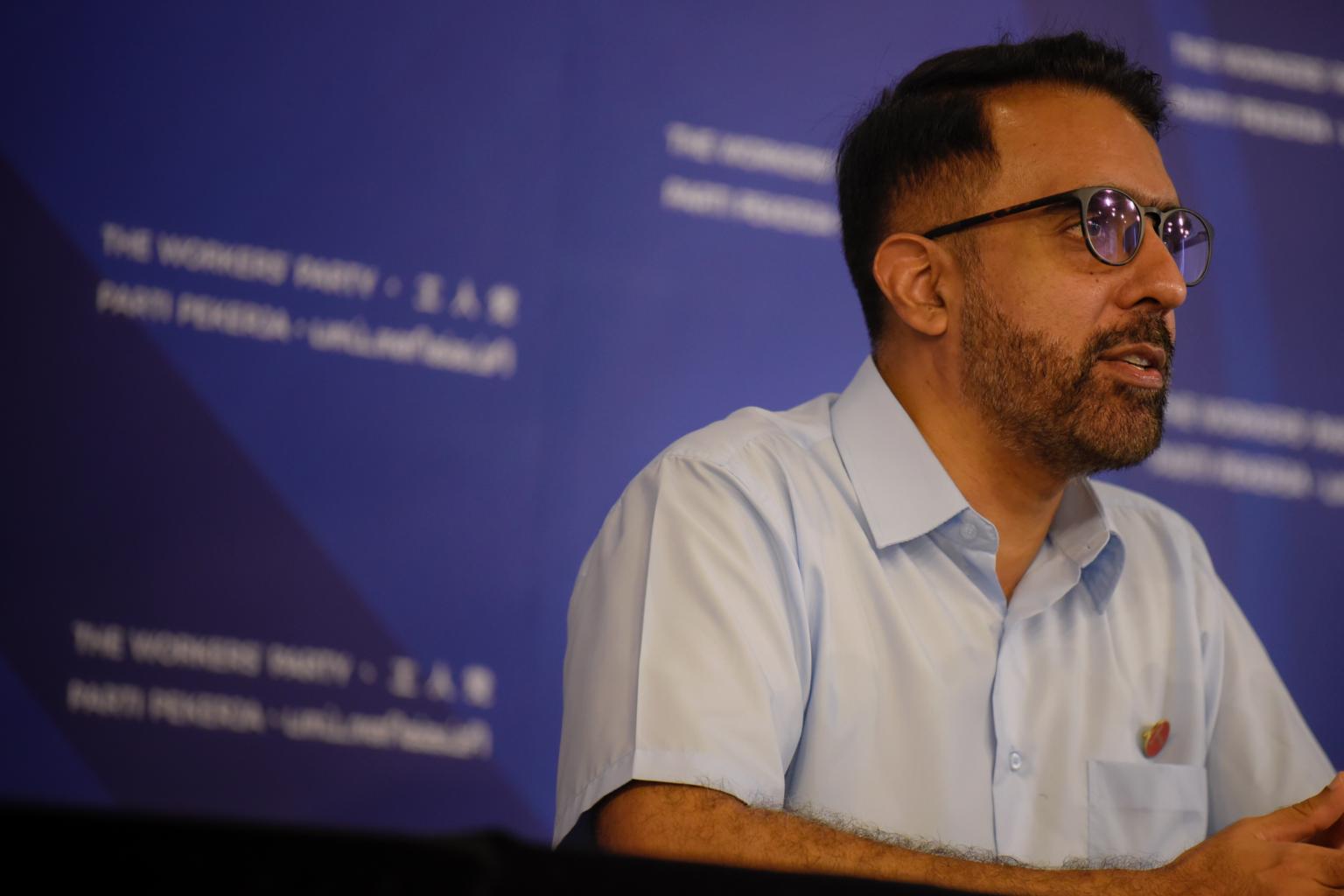WP's Pritam Singh clarifies he will donate half his salary increase as Opposition Leader, not half his entire salary
Sign up now: Get ST's newsletters delivered to your inbox

After income tax deductions, the amount works out to less than $96,000 of his $385,000 annual salary, Mr Singh clarified.
PHOTO: ST FILE
SINGAPORE - Workers' Party chief Pritam Singh has clarified that he will set aside half the pay increase he will get as Leader of the Opposition (LO) for donations to his party, residents and charities.
Clearing the air on how much of his salary he plans to donate, Mr Singh said that after income tax deductions, the amount he will give away is half the increase in his salary, which works out to less than $96,000 of his $385,000 annual pay, he said on Facebook on Wednesday (July 29).
On Tuesday, after the Government gave details about his political appointment, including salary, Mr Singh put up a Facebook post saying he would use a percentage of his salary "for a greater purpose".
In the post, he said he would "allocate 50 per cent of the LO salary, after taxes" towards funding programmes for residents, his party's specific needs, and charitable causes.
Mr Singh's post sparked widespread interest, as well as a debate about whether he intends to donate half his entire salary or if he plans to donate half the pay increase he will be getting as LO.
On Wednesday, Mr Singh added a clarification to his original post.
He said: "For clarity, 50 per cent of the additional LO salary amounting to about $96,000 per annum is dedicated to the above purposes. The actual amount will be less after income tax deduction. It is important I make this clear."
The sum of $385,000 is double the amount regular MPs get, and Mr Singh's decision to give away half of the pay rise drew praise from many observers, who said he was setting a good example for other political leaders.
In his original post, Mr Singh said he had discussed the offer of the LO position with his wife Loveleen Kaur Walia, after they put their two daughters to bed.
He said: "While I am grateful to receive the additional support and remuneration that comes with the title of Leader of the Opposition, the appointment will require more investment of my time and longer hours away from my family.
"Amongst other things, we spoke about what the salary increase would mean for our family. Both of us felt strongly that a percentage of the salary should be used for a greater purpose."
His Facebook post received more than 4,000 comments, mostly from netizens who expressed their respect for him.
But some people questioned his motives for making the plan public.
For instance, former Nominated MP Calvin Cheng called it "political theatre", and his post on Facebook sparked discussion on how much Mr Singh would be giving away.
Prime Minister Lee Hsien Loong's wife Ho Ching, who shared several of Mr Cheng's posts on the issue, also put up a post on Facebook about the donating of money, saying: "There are lots of folks who donated and continue to donate quietly, without making any public announcement.
"Some folks make public announcement of part of their donations, and still maintain privacy on the rest of their regular donations."
She did not refer to Mr Singh or cite specific examples in her post.
On Thursday night, Progress Singapore Party chief Tan Cheng Bock, in a Facebook post, supported Mr Singh's decision, saying it is a "wonderful and generous gesture and sets a good example for Singaporeans to emulate".
He added: "It is sad and unbecoming, that some people have chosen instead, to cast aspersions on his intentions... It is far better to be gracious and welcome the gesture than to continue to try to score political points. This is very disappointing."
Political analyst Loke Hoe Yeong - the author of a recent book on the history of the opposition in Singapore called The First Wave - also waded into the discussion.
In a Facebook post, he said he was "baffled at the hue and cry from some quarters" about Mr Singh's decision.
Dr Loke said that in 1985, then Minister of State Wong Kan Seng said he would donate half his ministerial salary and MP allowance, and he challenged opposition leaders J.B. Jeyaretnam and Chiam See Tong to do the same with their MP allowance and salaries from their legal practice.
Mr Wong was responding to a call from Mr Jeyaretnam to cut ministerial salaries by 25 per cent amid a recession that year, Dr Loke added.
Over the years, more than a few MPs and ministers have given away substantial amounts of their allowances and pay.
PM Lee, for instance, donated increases in his salary for several years from 2007, saying he wanted to signal to Singaporeans that his "primary considerations are for the future of this nation, and not for my own salary". He has also donated money to fund a raft of awards, such as the Prime Minister's Social Service Award, to encourage more Singaporeans to choose careers in social service.
Minister for Culture, Community and Youth Edwin Tong, meanwhile, has used his entire MP allowance since being elected in 2011 to fund grassroots dinners and charitable donations, among other things.
Others, such as MacPherson MP Tin Pei Ling, spend most of their MP allowance on donations and grassroots activities, and setting up social projects in their constituencies.


